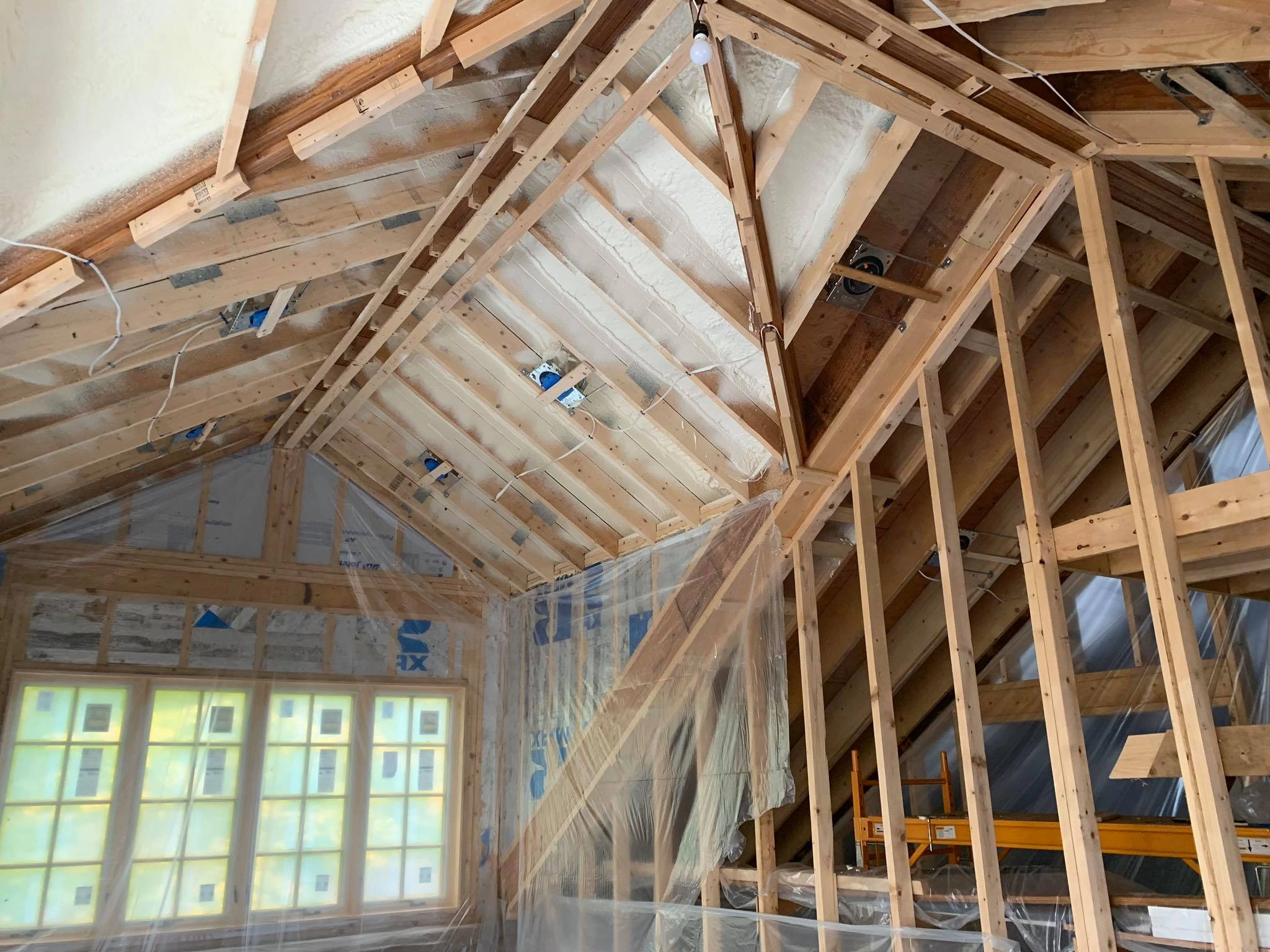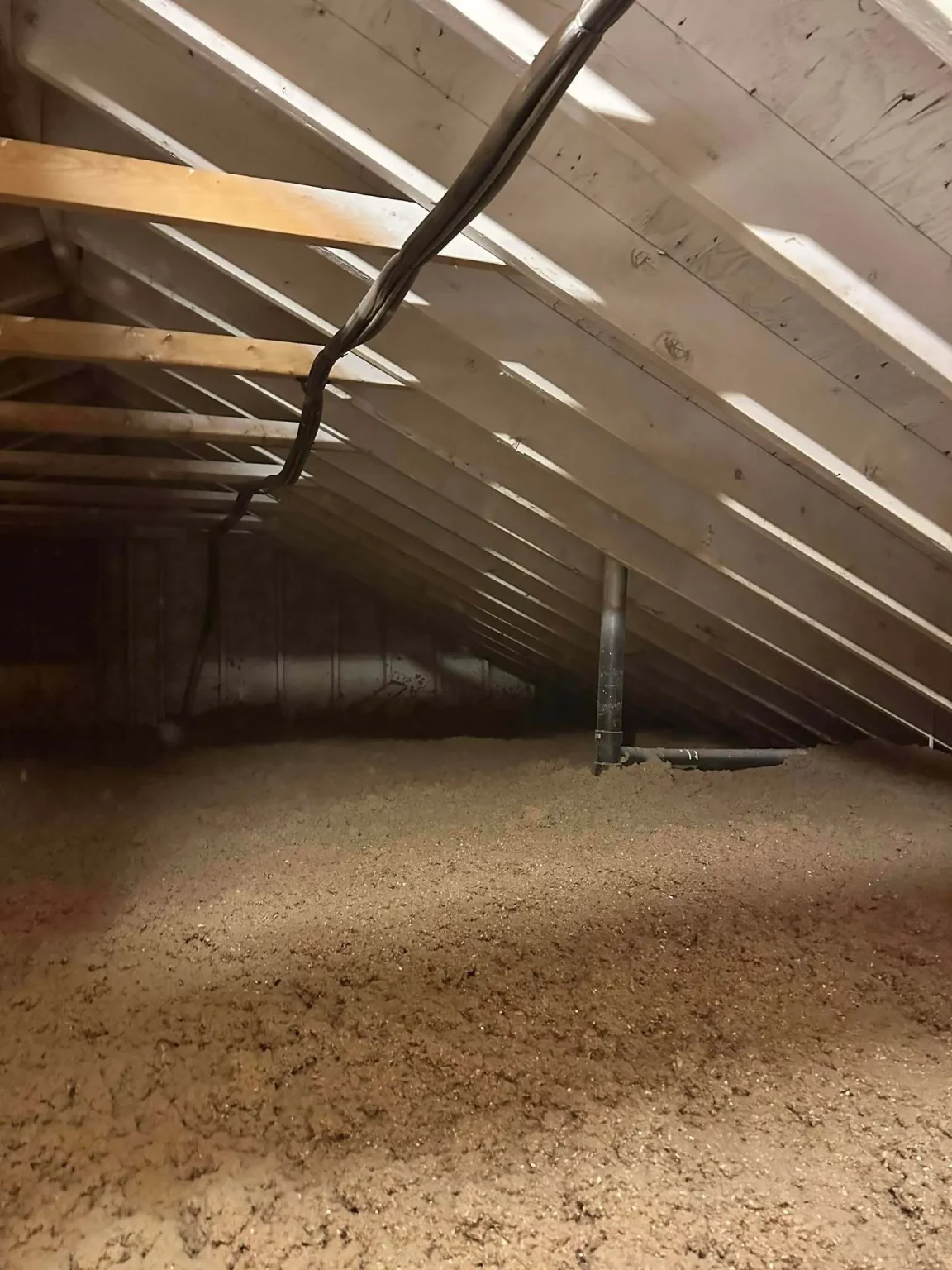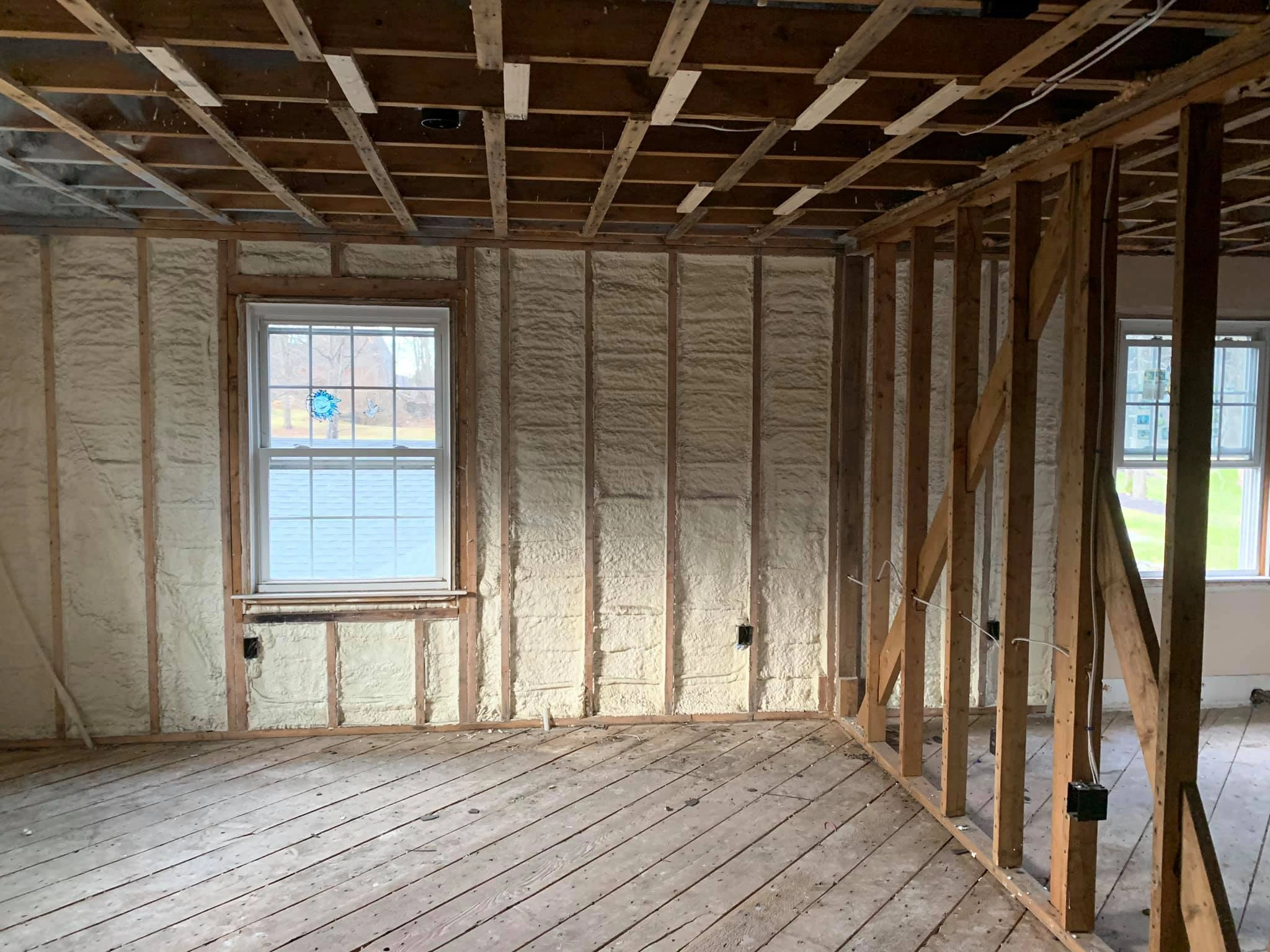
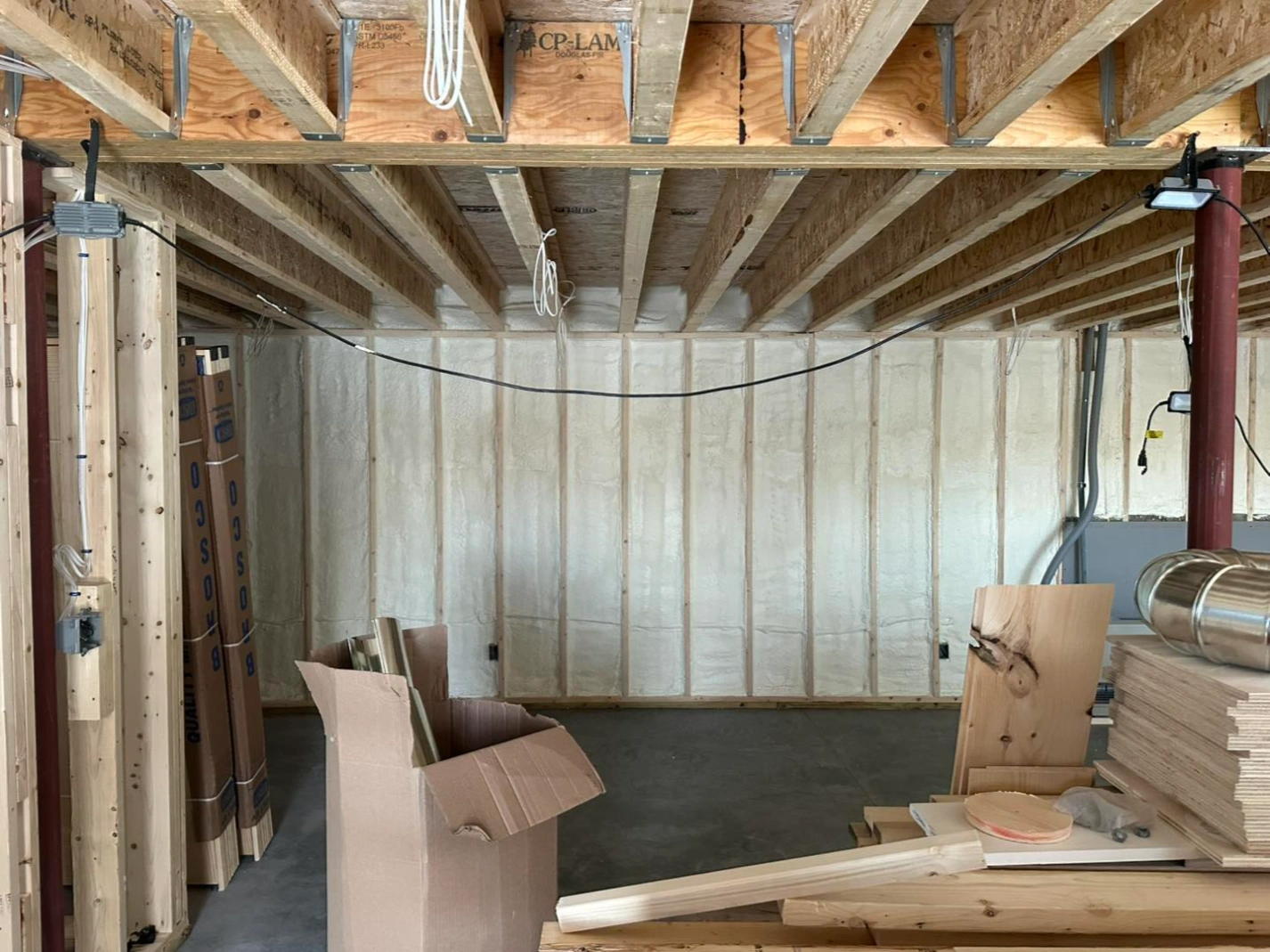
Hiring the right spray foam insulation contractor can make the difference between a job that lasts for decades and one that causes costly issues down the road. Before making your decision, it’s essential to ask the right questions to ensure you’re working with a knowledgeable and reliable professional. At Lamothe Spray Foam Insulation, we’ve seen how homeowners benefit from being informed—whether it’s about the types of spray foam available, safety practices, or warranties offered. In this guide, we’ll walk you through seven key questions every homeowner should ask before hiring a spray foam insulation contractor, along with the reasons why the answers truly matter.
Contractors should explain open-cell and closed-cell options clearly. Open-cell foam offers flexibility and sound dampening but absorbs moisture, making it suitable for interior walls in milder climates. Closed-cell foam provides rigidity, high R-value, and a vapor barrier, ideal for exterior applications or humid areas.
In colder regions like Massachusetts, closed-cell often works best for unvented attics to prevent condensation. Ask for specifics on R-value per inch; closed-cell typically reaches R-6 to R-7, while open-cell hits R-3.5 to R-4. A good contractor assesses your home’s layout, climate zone, and building codes before recommending. Requesting samples lets you see the material’s texture and density firsthand, helping you visualize how it seals gaps in your setup.
Preparation involves sealing off areas, protecting floors, and ensuring proper ventilation to avoid inhaling fumes. Safety protocols include using respirators, following OSHA guidelines, and having fire suppression ready, as spray foam can be flammable during application.
Contractors must detail cleanup plans too, since overspray leaves sticky residue. In multi-story homes, they should outline how to manage equipment transport without damaging interiors.
A table can clarify key preparation steps:
| Step | Description | Why It Matters |
|---|---|---|
| Site Assessment | Inspect for moisture, pests, or structural issues | Prevents future problems like mold growth |
| Area Protection | Cover vents, windows, and surfaces with plastic | Reduces cleanup time and protects valuables |
| Ventilation Setup | Install fans and exhaust systems | Clears harmful vapors for worker and occupant safety |
| Equipment Check | Calibrate sprayers and test materials | Ensures even application without defects |
This structured approach minimizes disruptions and risks.
Solid references include contact info for at least three recent jobs similar to yours. Follow up to ask about timeline adherence, communication, and post-installation performance. In New England, where winters test insulation, references from local homes reveal durability against freeze-thaw cycles.
Look for feedback on how well the foam held up to temperature swings. Avoid contractors who hesitate or provide outdated contacts; this signals potential unreliability.
Market data supports checking references: A 2022 survey by the Home Builders Association found that 78% of homeowners who verified references reported higher satisfaction with insulation outcomes (Home Builders Association).
Expect at least a 10- to 25-year warranty on the foam itself, plus labor guarantees covering defects like voids or poor adhesion. Clarify coverage for moisture-related issues, common in damp basements.
In climate zones with high humidity, such as coastal Massachusetts, warranties should address vapor permeability. Ask about manufacturer-backed options, as top brands like BASF offer 20-year protections when installed by certified pros.
Bonus Tip: Get everything in writing, including what triggers a warranty claim, to avoid disputes later.
Seek crews with at least five years in spray foam specifically, plus certifications from organizations like the Spray Polyurethane Foam Alliance (SPFA). Experience matters because improper mixing leads to off-gassing or shrinkage.
In regional contexts, ask about work in cold-weather installations, where low temperatures require heated equipment to maintain foam quality. Teams familiar with Massachusetts building codes ensure compliance with energy standards.
Data from the U.S. Department of Energy indicates that experienced installers achieve up to 20% better energy efficiency in homes compared to novices (U.S. Department of Energy).
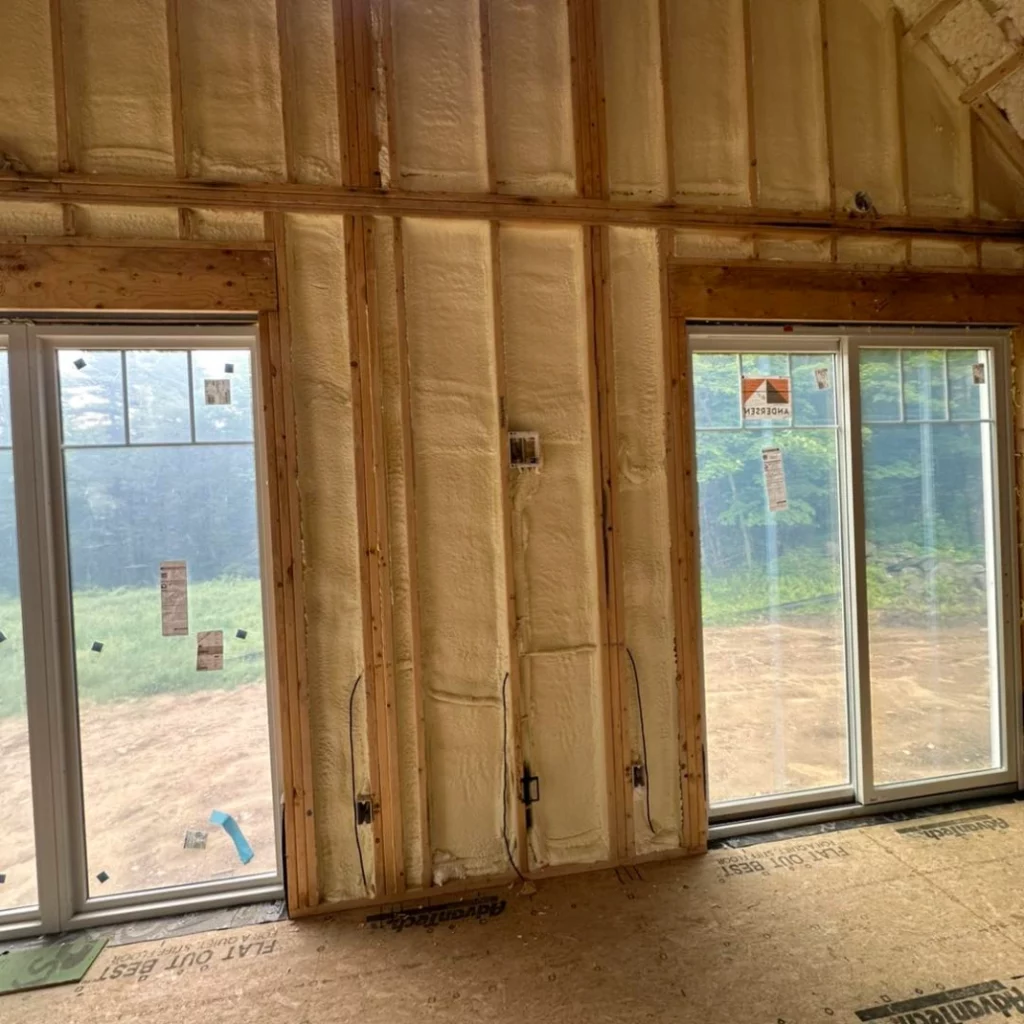
Air sealing prevents drafts, but over-sealing without vents traps humidity. An expert contractor should identify leakage points like rim joists and use foam judiciously. For example, in an older home, they might seal around windows while leaving space for natural airflow to prevent buildup behind walls.
They outline blower door tests post-installation to verify airtightness. In older New England homes with historic features, balance sealing with breathability to avoid trapped moisture.
Moisture control starts with site inspections for leaks or high humidity. Closed-cell foam acts as a barrier, but open-cell needs additional vapor retarders.
Ask about monitoring during curing, as uncured foam absorbs water. In rainy climates, contractors schedule around weather and use dehumidifiers.
A 2023 report from Building Science Corporation notes that poor moisture management causes 30% of insulation failures in humid areas (Building Science Corporation).
Building on the answers to these questions, also consider budget and other factors. Budget plays a role, but factor in long-term savings; spray foam can cut heating bills by 15-25% in cold climates (Energy Star). Compare quotes from multiple contractors, but prioritize quality over lowest price.
Check licensing and insurance to cover accidents. Consider your home’s age—older structures may need structural reinforcements before foaming. Evaluate environmental impact; low-VOC foams reduce indoor air pollutants.
Timing matters too; install before winter in Massachusetts to test performance during peak cold.
Most jobs take 2–5 days, depending on home size and accessibility.
Another concern is noise. Spraying equipment hums, but crews contain it to work zones to minimize disruption.
Bonus Tip: Schedule a pre-inspection to spot issues early, saving costs on surprises.
Yes, effective insulation improves energy ratings, appealing to buyers. Appraisals often note reduced utility costs as a plus in energy-conscious markets like New England.
Signs include uneven temperatures, high bills, or drafts. An energy audit pinpoints weak spots, guiding if foam suits your setup over other types.
Reputable ones pause work, explain findings, and quote fixes. This transparency builds trust and prevents bigger issues down the line.
Modern formulations use water-blown agents with low VOCs. Certified installers ensure off-gassing completes before occupancy.
Not always; avoid electrical boxes without proper distancing. Contractors assess for compatibility with plumbing and wiring.
Strong contractor answers these seven questions with specifics tailored to your home and location. Focus on experience, safety, and warranties to secure lasting results. Evaluate your setup against regional needs, like winter protection in Massachusetts, and match goals for energy savings or comfort.
Homeowners across Massachusetts can now access Lamothe’s trusted insulation expertise more easily than ever. Click here to read more about the service expansion.
Homeowners ready to proceed can reach Lamothe Spray Foam Insulation at (508) 847-0119 or [email protected]. Discuss project details to align with best practices. This step clarifies next actions without commitment.

